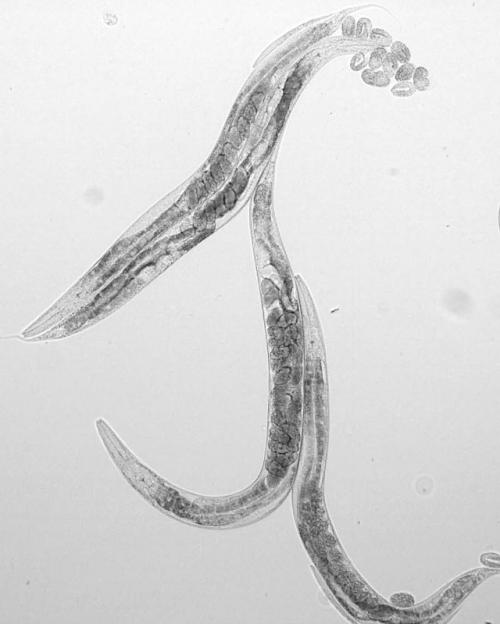A cell’s fate is closely tied to chemical signals it receives; small changes in the concentrations of these signals translate into dramatically different developmental fates. In this year’s Racker Lecture, “Sex and Death” on Thurs., Oct. 5, molecular biologist Barbara Meyer will explore cell fates and how they come about in metazoans, using C. elegans as a model. The talk, hosted by the Department of Molecular Biology and Genetics, will be at 8 p.m. in G10 Biotech.
“Professor Meyer is a superb lecturer and has had a remarkable scientific career. She’s made exciting discoveries regarding how disruptions in proper gene expression can have dramatic consequences in organism development and health as well as impact aging and lifespan,” said faculty host Richard Cerione, Distinguished Professor of Arts and Sciences in Chemistry and Chemical Biology in the College of Arts and Sciences and professor of molecular medicine in the College of Veterinary Medicine.
In her lecture, Meyer will cover how abnormalities in chromosome number disrupt the balance of gene expression and result in pathological abnormalities that can cause severe developmental defects and spontaneous abortions. She’ll also discuss how sex is determined and the evolution of related gene regulatory mechanisms.
Meyer will deliver a scientific lecture on Fri. Oct. 6 at 4 p.m. in G10 Biotech, entitled “X-Chromosome Dosage Compensation: A Single-Molecule Perspective.”
A genetics, genomics, and development professor in the molecular and cell biology department at University of California (UC), Berkeley, Meyer is also an adjunct professor in the biochemistry and biophysics department at the School of Medicine at UC, San Francisco.
Established in 1992, the annual lecture series is hosted by the Department of Molecular Biology and Genetics and honors Efraim Racker, who during his scientific career made seminal contributions to our understanding of basic cell metabolism and its role both in normal physiology and in diseases such as cancer. The Racker Lectures bring eminent scientists to Cornell who have made important contributions in the fields of biology, chemistry and medicine. Each scientist presents a public and an academic-technical lecture related to Racker’s research.




